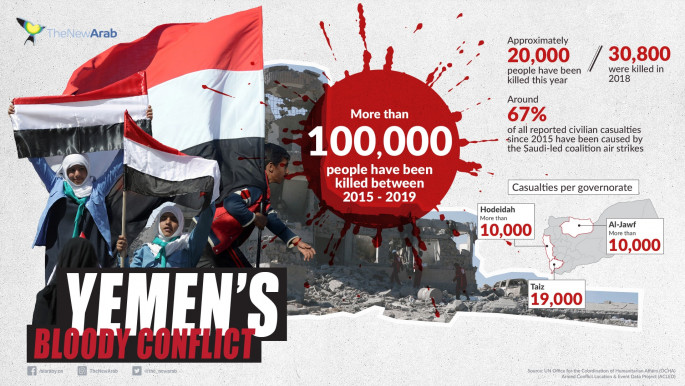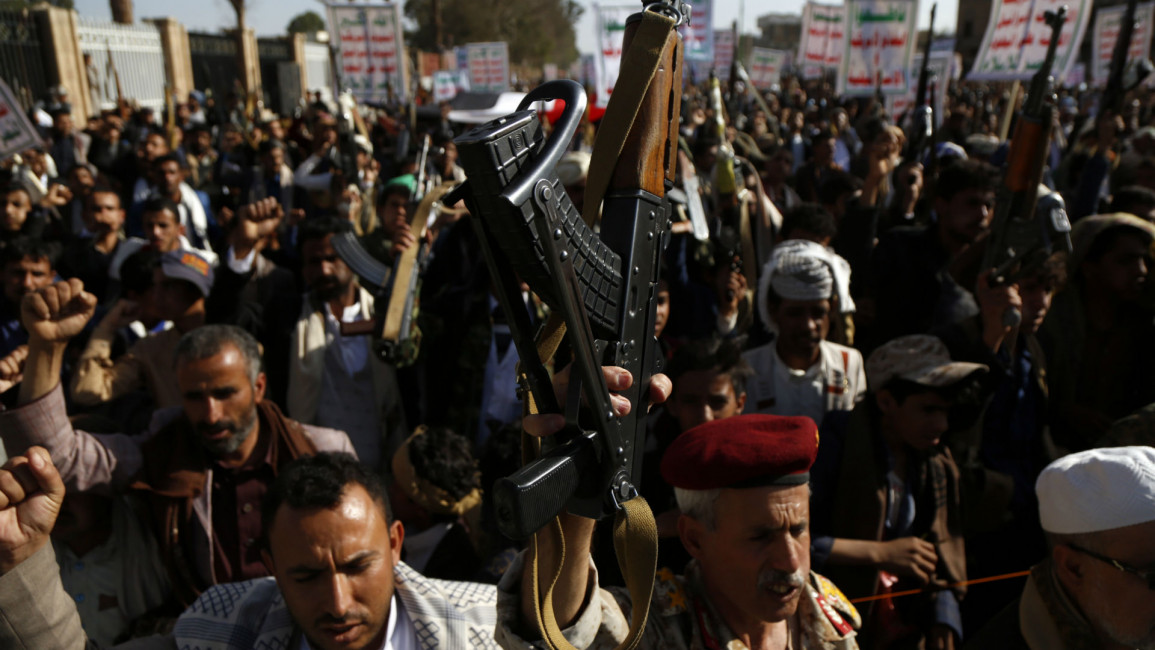UN Security Council warns against rising violence in Yemen amid raging Nihm offensive
The meeting, which was called by the United Kingdom, was held behind closed doors and called for the parties to re-engage in the political process.
Special envoy for Yemen Martin Griffiths, briefing the council via videoconference, "reiterated the importance of stopping the ongoing military escalation before it is too late," UN spokesman Stephane Dujarric said later.
"He warned that recent developments jeopardise the progress the parties had made on de-escalation and confidence building," the spokesman added.
The UN welcomed the Houthis' release earlier in the day in Sanaa of 64 children captured during military operations.
One diplomat, speaking on condition of anonymity, said the council would be issuing a statement urging the belligerents to return to the table and expressing its concern over the situation facing civilians. The UN has called it "the world's worst humanitarian crisis."
Earlier in Washington, US Secretary of State Mike Pompeo called on all parties to exercise restraint.
"The United States government is alarmed by renewed violence in Yemen," he said in a statement. "Renewed fighting is unacceptable and threatens to undermine this hard-earned progress.
"We call on all parties to put the needs of the Yemeni people first and immediately return to restraint. The Houthis must cease attacks on Saudi territory."
Twitter Post
|
The remarks and calls for calm were in response to recent clashes between the Houthis and Yemeni government forces, which resumed with the launch of a government offensive against the rebels earlier this month, after months of relative calm.
On Saturday, the Houthis seized control of a strategic highway east of Sanaa, pursuing their offensive to the north and east of the Yemeni capital, according to loyalist military officers.
On Monday a missile struck a popular market west of the city of Taiz in southwestern Yemen, killing three civilians and wounding seven others, according to the Saba news agency, which blamed the Houthis for the attack.
On Friday, the government acknowledged the Houthis' progress, saying it had carried out a "tactical withdrawal" of its own troops from certain positions east of Sanaa, some of which it had held for three years.
The rebel advance came despite extensive air support for government forces from its allies in a Saudi-led coalition, amid a mass offensive against the rebels in the nearest city to the capital.
The offensive came as the government accused the rebels of killing 116 people in a January 18 missile attack on a loyalist military camp in Marib province, east of Nihm.
The death toll ranked among the highest from a single rebel assault since the start of the war, sparking widespread condemnation. US and UN officials warned the military escalation could undermine peace efforts.
"The hard-earned progress that Yemen has made on de-escalation is very fragile. Such actions can derail this progress," the United Nations envoy for Yemen, Martin Griffiths said, urging Yemen's conflicting factions to redirect efforts from the battlefield to political dialogue.
EU foreign policy spokesman Peter Stano said in a statement late on Sunday that "all parties should show restraint and engage constructively with the UN Special Envoy to end the conflict".
"The EU will continue supporting the UN in achieving this with all the tools at its disposal," he added.
 |
The Houthis neither claimed or denied they were behind that attack, which came a day after fighting between the two sides resumed, breaking months of relative calm.
In a report published on Friday, the International Crisis Group said the "Houthis appeared to be making the biggest gains on the battlefield".
The think-tank warned that if the renewed fighting spread, it would represent "a devastating blow to current efforts to end the war".
Yemen’s deadly conflict began with the 2014 takeover of the capital by Houthi rebels who went on to control much of the country’s north. In response, a Saudi-led coalition allied with the internationally-recognised government intervened to push back the rebels in March 2015.
However, the relentless campaign has seen Saudi-led airstrikes hit schools, hospitals and wedding parties, killing thousands of Yemeni civilians. Meanwhile, the Houthis have used drones and missiles to attack the neighbouring Saudi kingdom.
The war has killed over 100,000 people and created what the UN has branded as the world’s worst humanitarian crisis, leaving millions suffering from food and medical shortages.



